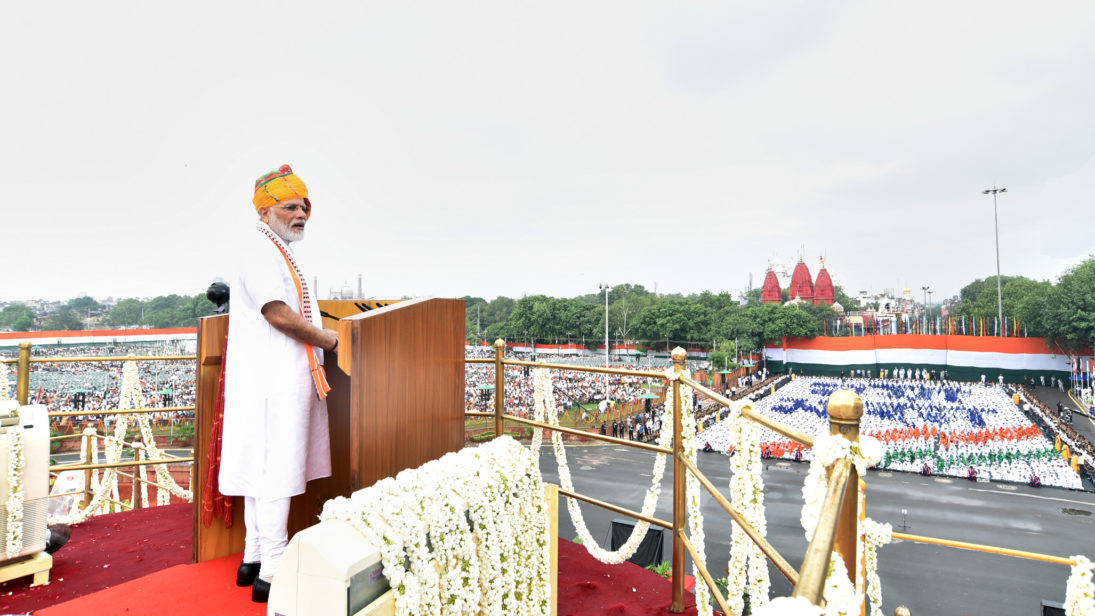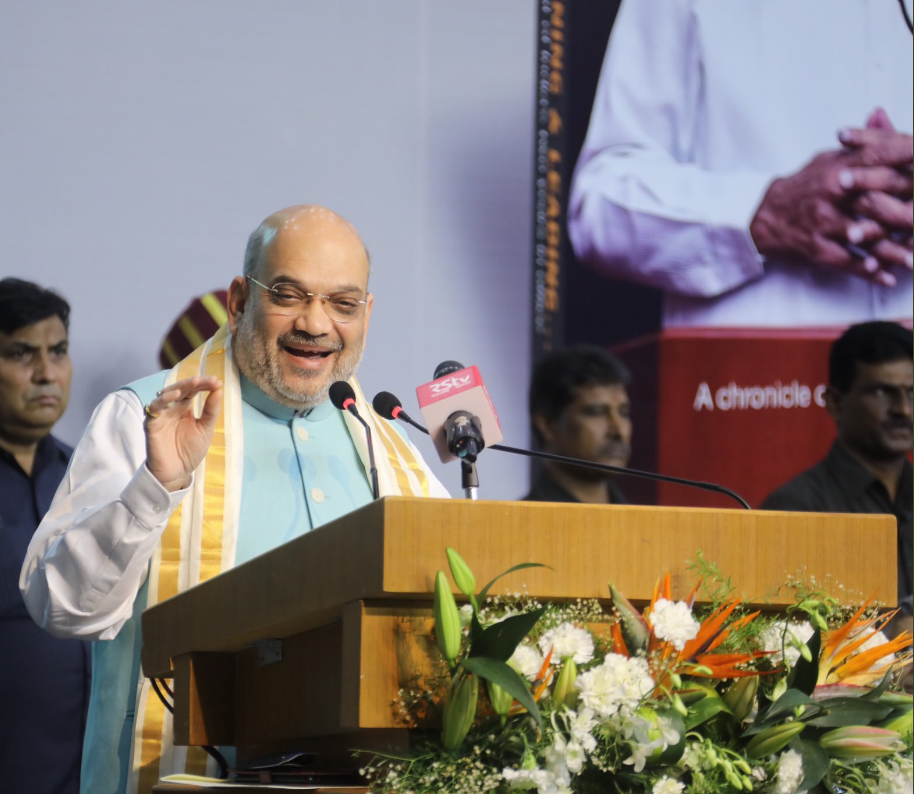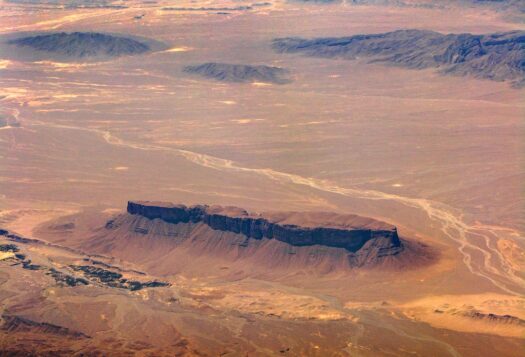
On August 5, the Narendra Modi-led National Democratic Alliance (NDA) government announced major changes in Article 370 of the Indian Constitution that granted “special status” to the state of Jammu & Kashmir (J&K), including the Ladakh region. Revoking this special status to fully integrate J&K into India has been a longstanding politico-ideological demand of the Bharatiya Janata Party (BJP)–the BJP’s 2019 Lok Sabha Election manifesto clearly mentions the party’s historical position on the “abrogation” of Article 370 and the annulment of Article 35A, which allowed the J&K legislature to define permanent residents of the state.
The Jammu and Kashmir Reorganization Act 2019 proposes to bifurcate J&K into two Union territories (UTs): Jammu & Kashmir and Ladakh. The decision to immediately propose reorganization after the abrogation of J&K’s special status was possibly taken in anticipation of violent civilian unrest in the Kashmir Valley. The change to Union Territory status will likely give New Delhi more control over local administrative and legislative powers in J&K, in addition to direct control over the police and protection and maintenance of public order. However, Indian Home Minister Amit Shah assured the parliament that when the situation returns to normalcy and “the right time comes,” the central government will once again grant full “state” status to the union territory of J&K.
There are two possible implications of the ruling BJP’s decision to abrogate Article 370: first, the BJP may gain political mileage from the move, both in J&K and the rest of India. Secondly, New Delhi may now be able to further emphasize the Kashmir issue as an “internal” matter of India in response to attempts at third-party mediation. However, the government understands the risks involved, such as possible civilian unrest and terror attacks in the Valley, communal tensions in J&K, and the internationalization of the Kashmir issue.
Domestic Political Angle
Even though New Delhi may face challenges in stabilizing the law and order situation in the Kashmir Valley after this revocation decision, the BJP’s choice to abrogate Article 370 may possibly give it long-term political mileage across India and a real shot at reshaping the political status quo in J&K.
Moreover, the timing of the decision is also critical. The ruling BJP likely felt emboldened in taking important domestic political decisions after the historic mandate it received in the recently concluded parliamentary elections. It was also likely empowered by the fact that the political opposition remains weak and not unified, as became evident after some parties supported the government’s decision to revoke J&K’s special status, while the Indian National Congress (INC) and the Communist parties among others opposed it. Lastly, the BJP government will have almost five years—until the 2024 Lok Sabha elections—to bring political stability to J&K and complete the reorganization process.
Even though New Delhi may face challenges in stabilizing the law and order situation in the Kashmir Valley after this revocation decision, the BJP’s choice to abrogate Article 370 may possibly give it long-term political mileage across India and a real shot at reshaping the political status quo in J&K.
After scrapping J&K’s special status, the BJP sees an opportunity to form government in the newly-declared Union Territory of J&K. The government intends to undertake delimitation of the J&K legislative assembly constituencies in order to conduct local elections once the law and order situation normalizes in the Kashmir Valley. The proposed delimitation will redraw the scope and size of constituencies and determine the total number of seats to be reserved for the Scheduled Castes, those who belong at the bottom of the Indian caste system, in J&K. The new constituencies map in J&K may give some electoral advantage to the ruling BJP as it is possible that its stronghold Jammu may obtain more seats after the delimitation process is complete. If that happens, the BJP will have a realistic chance to form the new government in J&K and appoint its own chief minister (CM).

If the BJP is unable to secure enough seats to rule from Jammu through the delimitation process, it may require support from a Kashmir Valley-based party in a coalition government. The BJP understands that it has a marginal political presence in the Kashmir Valley, where many are opposing the abrogation of Article 370. The two most popular political parties in Kashmir, the National Conference (NC) and the Peoples Democratic Party (PDP), are unlikely to join hands with the BJP after recent arrests of their top leaders, both former CMs of the state of J&K, Omar Abdullah and Mehbooba Mufti respectively. Further, the possibility of a united opposition in the Valley may dampen the BJP’s chances of ruling the new Union Territory. In the worst-case scenario, Kashmir-based parties may also decide to boycott legislative assembly elections to protest the scrapping of Article 370.
Nevertheless, the decision to revoke Article 370 will give more political mileage to the ruling BJP across India. Popular support from various constituencies will also make it an electoral talking point for upcoming state elections and the 2024 Lok Sabha polls. However, an unsuccessful integration process might have long-term political implications for the BJP since opposition parties may see it as a reason to unite against the ruling party in future state and parliamentary elections.
Impact on India-Pakistan Relations
India’s decision to revoke J&K’s special status is likely to further complicate India-Pakistan bilateral relations. Recent geopolitical developments such as the anticipated withdrawal of U.S. troops from Afghanistan, the possible return of an emboldened Taliban in Kabul, and U.S. President Donald Trump’s comments regarding mediation of the Kashmir issue may have compelled the Modi government to expedite the process of scrapping the special status of J&K before the monsoon session of the Indian parliament ended on August 7. New Delhi is likely worrying that if the United States withdraws from Afghanistan and the Taliban returns to power, Pakistan-backed terror groups might get training in Afghanistan and turn their attention to J&K.
The Kashmir dispute may now become a “strictly internal matter” of India rather than a bilateral issue to be discussed with Pakistan as the second party. It is possible that the Modi government may now focus on formalizing the Line of Control and International Boundary, which Pakistan refers to as the Working Boundary, in an effort to render the current division of territory in Kashmir non-negotiable.
With the scrapping of the special status of J&K, New Delhi is likely to seek a change in the narrative around the Kashmir issue, altering the position it has maintained since the 1972 Shimla Agreement that India and Pakistan should discuss their disputes bilaterally. The Kashmir dispute may now become a “strictly internal matter” of India rather than a bilateral issue to be discussed with Pakistan as the second party. It is possible that the Modi government may now focus on formalizing the Line of Control and International Boundary, which Pakistan refers to as the Working Boundary, in an effort to render the current division of territory in Kashmir non-negotiable. India’s Defense Minister Rajnath Singh’s recent comments suggested this shift is taking place when he said that any future talks with Pakistan will be on Pakistan-administered Kashmir only. This apparent change in India’s narrative may call for strong responses from Pakistan.
As such, it is unsurprising that Islamabad has intensified its diplomatic offensive to garner international support on the Kashmir issue, including expelling the Indian High Commissioner in Pakistan, stopping crossborder trade with India, and initiating outreach to China, the United States, the United Nations, and the Organization of Islamic Cooperation (OIC). These diplomatic overtures risk the internationalization of the J&K issue for India.
However, New Delhi’s main concern remains the ability of the Pakistani military establishment to use terror groups such as Jaish-e-Mohammed, Lashkar-e-Taiba, and Kashmir-based Hizbul Mujahideen to create unrest in J&K. Understanding the gravity of the situation in Kashmir and possible civilian unrest in the aftermath of the decision, India’s National Security Adviser (NSA) AjitDoval is camping in Srinagar and travelling to different parts of the Valley to assess circumstances on the ground.Tensions on the Indo-Pak border, new militant recruitments, and social media warfare between India and Pakistan may intensify in the coming weeks.
Way Ahead
What the Modi government fears—and should fear the most—is the public reaction in Kashmir. They do not want to witness a repeat of the 2016 protests in the wake of Burhan Wani’s death. Perhaps taking those fears into consideration, New Delhi resorted to stringent measures such as a communications blackout, media outage, indefinite curfew, and arrests of mainstream political leaders, including two previous CMs, in order to avoid violent street protests and civilian casualties in J&K.
Nonetheless, it will take some time to discern the real implications of the decision since the curfew is slowly lifting and lines of communication have just begun to be restored in the Kashmir Valley. However, one worrisome scenario could be escalation to a limited military conflict between the two nuclear neighbors after a possible terror attack in either J&K or mainland India by a Pakistan-based terror group. Secondly, the Modi government will require immediate and effective outreach mechanisms to address people’s concerns in the Valley, building intra-regional confidence between Jammu and Kashmir, and avoid defections in local security agencies. If the government does not prioritize corrective measures immediately, there are grave chances of civilian unrest and violent street protests in the Kashmir Valley.
***
Click here to read this article in Urdu.
Image 1: Press Information Bureau, India
Image 2: Amit Shah via Twitter (cropped)


